| DECEMBER 7, 2020 | PRESS RELEASE
Origins Training & Consulting has received grant funds from the Office of the California Surgeon General (CA-OSG) and the Department of Health Care Services (DHCS) to participate in the state’s ACEs Aware initiative. In partnership with Eisner Health, Origins will be developing a practice paper to share learnings from Eisner’s experience developing a trauma-informed approach. Origins will also be providing trainings to support the integration of a trauma-informed approach through the Community Clinic Association of Los Angeles County (CCALAC) to promote the ACEs Aware initiative among the Medi-Cal provider community in Los Angeles. A total of $14.3 million was awarded to 100 organizations throughout the state to extend the reach and impact of the ACEs Aware initiative. ACEs Aware seeks to change and save lives by helping Medi-Cal providers understand the importance of screening for Adverse Childhood Experiences (ACEs) and training them to respond with trauma-informed care. The ACEs Aware grants will provide funding to organizations to design and implement training, provider engagement, and education activities for providers and organizations that serve Medi-Cal beneficiaries. “We are looking forward to working in partnership with this amazing group of community leaders to further our efforts to help health care providers become ACEs Aware,” said California Surgeon General Dr. Nadine Burke Harris. “This work is critical, now more than ever, given the stress so many Californians are experiencing as a result of COVID-19 and the role of racial injustice as a risk factor for toxic stress. A trauma-informed health care workforce is vital for helping our state heal.” The grant funding will provide critical support to community organizations serving Medi-Cal providers and beneficiaries, which have been experiencing increased stress during the COVID-19 emergency. Grant activities will augment California’s efforts, underway since the summer of 2019, to develop provider training and engage providers, including the promotion of payments to Medi-Cal providers for screening their patients for ACEs. Added Dr. Karen Mark, DHCS Medical Director: “DHCS is committed to preserving and improving the overall health and well-being of all Californians. The ACEs Aware initiative is a vital part of the Medi-Cal program’s response to the COVID-19 emergency. These grants will help us reach Medi-Cal providers who serve diverse and often at-risk populations throughout the state, and will help to ensure that Medi-Cal members receive the high-quality, integrated care that every Californian deserves.” Funding for the ACEs Aware grants was previously authorized in the 2019-20 budget using Proposition 56 funds for provider training on how to conduct ACE screening in the Medi-Cal population. In light of the COVID-19 emergency, the grant funding will provide critical support to the community organizations serving Medi-Cal providers and beneficiaries. “We are thrilled to providings trainings to the Los Angeles Medi-Cal community on integrating a trauma-informed approach and also to share the learnings from Eisner’s experience with this approach with other organizations who are embarking on this journey,” said Origins Co-Founder Lori Chelius. The full list of ACEs Aware grantees is available on the ACEs Aware Website. _________________________________________________________________________________________________________________ About Origins Origins Training & Consulting supports leaders in their journey to build more resilient organizations and communities through the integration of a trauma-informed approach. Our work is informed by the original Adverse Childhood Experiences (ACE) study, the neurobiology of toxic stress, the impact of systemic trauma, and the science of resilience. We provide training and consulting services to executives, management and supervisors, direct service professionals and paraprofessionals, caregivers, and community members across sectors aimed at shifting the narrative of how we understand health and behavior. Our approach is centered on the foundational role of organizational culture and emphasizes the importance of internal practices and staff wellness when implementing a trauma-informed and healing approach. About ACEs Aware Led by Dr. Nadine Burke Harris, California Surgeon General, and Dr. Karen Mark, Medical Director for DHCS, the ACEs Aware initiative offers Medi-Cal providers core training, screening tools, clinical protocols, and payment for screening children and adults for Adverse Childhood Experiences (ACEs), which are stressful or traumatic experiences people have by age 18 that were identified in the landmark ACE Study. ACEs describe 10 categories of adversities in three domains – abuse, neglect, and/or household dysfunction. ACEs are strongly associated with at least nine out of 10 of the leading causes of death in the United States. Part of Governor Gavin Newsom’s California for All initiative, the goal of ACEs Aware is to reduce ACEs and toxic stress by half in one generation. Follow ACEs Aware on Facebook, Twitter, LinkedIn, and Instagram. Office of the California Surgeon General The role of California Surgeon General was created in 2019 by Governor Gavin Newsom to advise the Governor, serve as a leading spokesperson on public health matters, and drive solutions to the state’s most pressing public health challenges. As California’s first Surgeon General, Dr. Nadine Burke Harris has established early childhood, health equity, and ACEs and toxic stress as key priorities. California Department of Health Care Services California Department of Health Care Services DHCS is the backbone of California’s health care safety net, helping millions of low-income and disabled Californians each and every day. The mission of DHCS is to provide Californians with access to affordable, integrated, high-quality health care, including medical, dental, mental health, substance use treatment services, and long-term care. DHCS’ vision is to preserve and improve the overall health and well-being of all Californians. DHCS funds health care services for about 13 million Medi-Cal beneficiaries. |
______________________________________________________________________
Start here to develop a shared language
The Basics is a two-hour workshop helps introduce to you and your staff establish a common language around trauma-informed principles and practices so everyone can develop a culture centered on resilience-building together.
Begin by exploring the impacts of toxic stress on both clients and staff, while deepening your team’s understanding of ACEs, as well as the role of systemic and intergenerational adversity. Finally, learn more about the concept of resilience, identify how protective factors can help heal the impacts of trauma, and discuss how resilience can be built and sustained within an organization.
Note: Action team members should participate in this workshop before “graduating” to The Resilience Champion series.
I’m ready to build a resilient organizational culture
The Resilience Champion is a six-week course is for leaders who want to integrate a trauma-informed approach in their setting and start building a resilient organizational culture. In the Resilience Champion series, your action team (who will lead your implementation) will participate in a six-workshop series which helps translate and operationalize the key concepts of a trauma-informed approach in your unique organization. Together with your colleagues, you will develop a shared foundation, specific goals, and concrete steps to create and sustain a resilient culture.

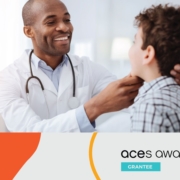

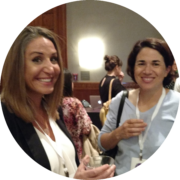
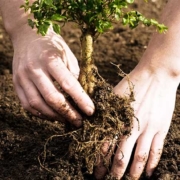
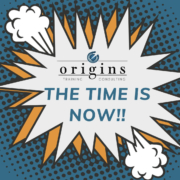
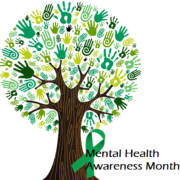
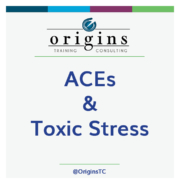

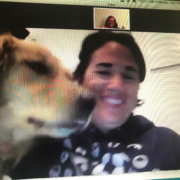
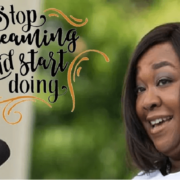



 Getting Started: A Guide from Trauma to Resilience
Getting Started: A Guide from Trauma to Resilience